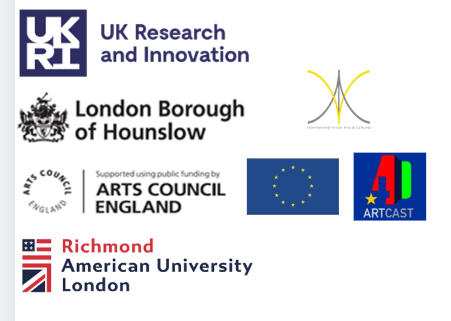Richmond hosts EU Funded Artcast4D Interactive Installation from Artist Pawel Janicki
Author: Richmond American University London
Richmond will be hosting an interactive installation, AAAMaze, from Wednesday 12th February to Saturday 1st March on campus by polish artist Pawel Janicki, presented by Watermans Art Centre as a commission for the EU funded project ArtCast4D.
The interactive installation, AAAMaze features an infinite, constantly evolving real-time generated labyrinth. Throughout history, labyrinths and mazes have been, central to mythology, psychology, and more recently game design – classic games like Snake (1976) and Pac-Man (1979) highlight their immersive appeal. Mazes challenge us, engage our imaginations, and invite exploration, becoming timeless metaphors for understanding our reality.
AAAMaze is a labyrinth that can be explored by the public, but with a twist – it’s an infinite labyrinth generated in real time for the audience. Only a part of the labyrinth is visible at one time, and the invisible parts of the labyrinth change constantly, making it impossible to return to a previous location.
Project curator, Klio Krajewska commented, “Pawel Janicki’s AAAMaze presents a playful and entertaining interactive labyrinth experience utilising the AAASeed software.”
Presented in collaboration with Richmond’s Centre for International Visual Arts and Cultures (IVAC), the installation will be situated on campus and open for staff, students, and the public to come and explore. The dates and times are as follows:
12 Feburary-1st March
Launch Event: Wednesday 12th February 5pm
10am-6pm Mon-Fri
10am-4pm Saturday
Closed Sunday
Members of the public can book their place on the Watermans website here.
AAAMaze has received funding from the European Union’s Horizon Europe research and innovation programme under grant agreement No. 101061163. It was also funded by UK Research and Innovation (UKRI) under the UK government’s Horizon Europe funding guarantee grant No. 10079472. The project is also financially supported by the Horizon Europe Research and Innovation programme.










